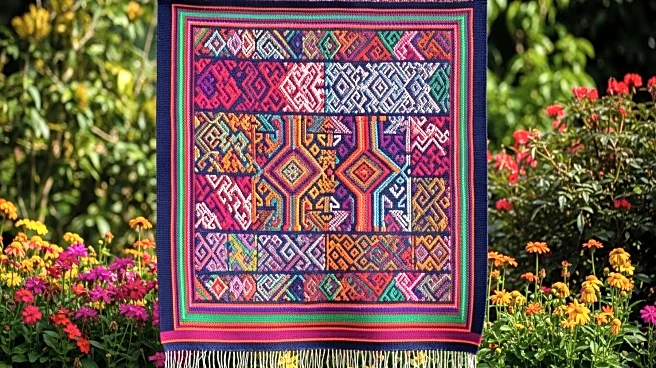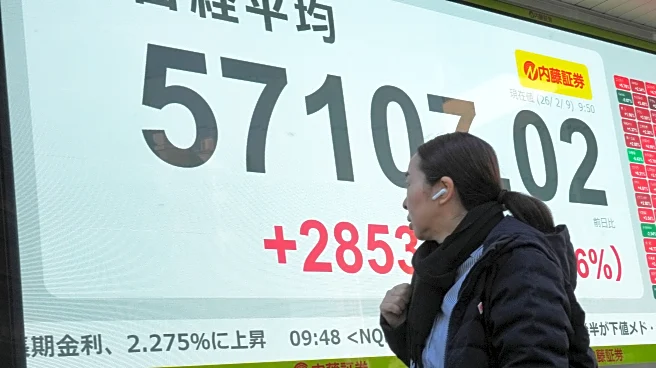What's Happening?
In Riohacha, Colombia, indigenous Wayuu weavers are striving to overcome exploitation by middlemen in the sale of their traditional mochilas, handwoven bags that reflect their cultural heritage. These artisans often receive minimal compensation for their work, with intermediaries offering as little as $5.50 per bag, leaving them with only $1.50 after expenses. Despite these challenges, some weavers have improved their economic conditions through domestic sales and exports, enabling better educational opportunities for their families. The mochilas, which feature geometric patterns symbolizing clan identity and spirituality, have gained international recognition, appearing in high-end fashion weeks and magazines like Vogue China. Entrepreneurs like Laura Chica have founded companies that focus on high-quality bags, ensuring fair wages for the artisans and promoting the cultural value of the mochilas.
Why It's Important?
The efforts of Wayuu weavers to secure fair wages and recognition for their craftsmanship highlight broader issues of economic exploitation and cultural preservation. By accessing fairer export markets, these artisans can improve their livelihoods and sustain their traditional practices. The growing global demand for mochilas presents both opportunities and challenges, as it can lead to increased income but also pressure to sacrifice traditional craftsmanship for commercial gain. The situation underscores the importance of fair trade principles and the need for socially-conscious entrepreneurship to support indigenous communities. Successful initiatives can empower these artisans, providing them with autonomy and the ability to connect directly with international buyers, thereby preserving their cultural heritage while improving their economic prospects.
What's Next?
Organizations like Fundación Talento Colectivo and One Thread Collective are working to support Wayuu weavers through education and training, aiming to prepare them for entrepreneurship and direct client engagement. Workshops are being conducted to help artisans become autonomous and capable of navigating broader markets. As international interest in mochilas grows, more foreign businesses are sourcing directly from La Guajira, facilitated by AI tools and translation apps. This trend could lead to increased competition but also greater opportunities for direct sales, potentially reducing reliance on exploitative intermediaries. The continued focus on fair trade and cultural appreciation will be crucial in ensuring that the benefits of global demand are equitably distributed among the Wayuu weavers.
Beyond the Headlines
The story of the Wayuu weavers reflects broader themes of cultural preservation and economic justice. As traditional crafts gain international attention, there is a risk of commodification that could undermine the cultural significance of these practices. Ethical considerations arise in balancing commercial success with the preservation of heritage. The involvement of socially-conscious entrepreneurs and organizations in promoting fair trade practices highlights the potential for business to drive positive social change. Long-term, the empowerment of indigenous artisans could lead to greater cultural exchange and understanding, fostering appreciation for diverse traditions and the skills of marginalized communities.












